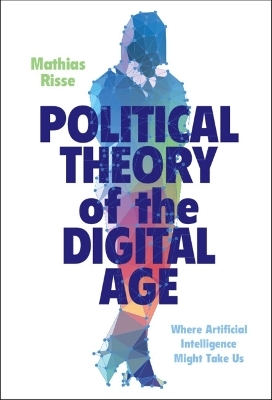
Political Theory of the Digital Age
Cambridge University Press (Verlag)
978-1-009-25521-9 (ISBN)
With the rise of far-reaching technological innovation, from artificial intelligence to Big Data, human life is increasingly unfolding in digital lifeworlds. While such developments have made unprecedented changes to the ways we live, our political practices have failed to evolve at pace with these profound changes. In this path-breaking work, Mathias Risse establishes a foundation for the philosophy of technology, allowing us to investigate how the digital century might alter our most basic political practices and ideas. Risse engages major concepts in political philosophy and extends them to account for problems that arise in digital lifeworlds including AI and democracy, synthetic media and surveillance capitalism and how AI might alter our thinking about the meaning of life. Proactive and profound, Political Theory of the Digital Age offers a systemic way of evaluating the effect of AI, allowing us to anticipate and understand how technological developments impact our political lives – before it's too late.
Mathias Risse is the Berthold Beitz Professor in Human Rights, Global Affairs, and Philosophy at Harvard University. He is the author of On Global Justice (2012), On Justice (2020), and Global Political Philosophy (2020), as well as the co-author of On Trade Justice (2019) and Holding Together: The Hijacking of Rights in America and How to Reclaim Them For Everyone (2022).
1. Introduction: digital lifeworlds in human history; 2. Learning from the Amish: political philosophy as philosophy of technology in the digital century; 3. Artificial intelligence and the past, present, and future of democracy; 4. Truth will not set you free: is there a right to it anyway? Elaborating on the work public reason does in life 2.0; 5. Knowing and being known: investigating epistemic entitlements in digital lifeworlds; 6. Beyond porn and discreditation: epistemic promises and perils of deepfake technology; 7. The fourth generation of human rights: epistemic rights in life 2.0 and life 3.0; 8. On surveillance capitalism, instrumentarian power, and social physics: securing the enlightenment for digital lifeworlds; 9. Data as social facts: distributive justice meets big data; 10. God, Golem, and gadget worshippers: meaning of life in the digital age; 11. Moral status and political membership: toward a political theory for life 3.0; Epilogue.
| Erscheinungsdatum | 30.01.2023 |
|---|---|
| Zusatzinfo | Worked examples or Exercises |
| Verlagsort | Cambridge |
| Sprache | englisch |
| Maße | 155 x 235 mm |
| Gewicht | 650 g |
| Themenwelt | Informatik ► Theorie / Studium ► Künstliche Intelligenz / Robotik |
| Naturwissenschaften | |
| Sozialwissenschaften ► Politik / Verwaltung ► Politische Theorie | |
| ISBN-10 | 1-009-25521-5 / 1009255215 |
| ISBN-13 | 978-1-009-25521-9 / 9781009255219 |
| Zustand | Neuware |
| Haben Sie eine Frage zum Produkt? |
aus dem Bereich


